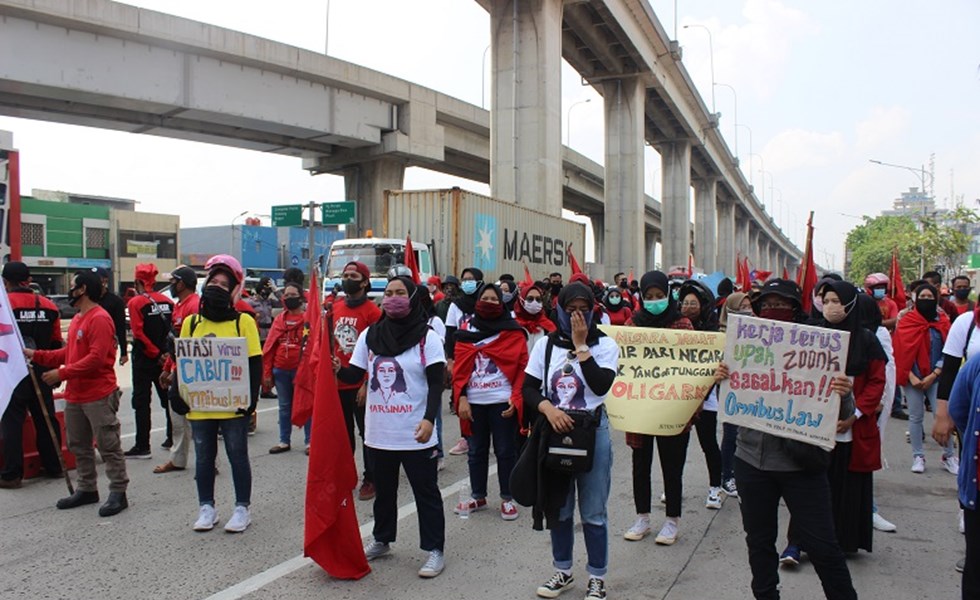Preface
Annual Report 2021
Mondiaal FNV supports workers worldwide in their fight for decent work.

Photo: protests against the Omnibus law Indonesia succesful
Everyone has the right to fair working conditions, a living wage, social protection, and collective bargaining, but in many countries these barely exist, if at all. That is why, together with workers, their trade unions and NGOs that support workers’ rights, we strive for a world in which strong unions are enabled to ensure decent work for all.
Variety of sources
Mondiaal FNV’s work is funded from a variety of sources. FNV members contribute to this via their membership, we receive donations from individual donors, contributions pursuant to collective bargaining agreements, and we also receive subsidies. In January 2021 Mondiaal FNV was given the green light for a new 10-year partnership with the Dutch Development Cooperation Department within the framework of the Trade Union Co-Financing Programme (TUCP). In addition, for our participation in the Sustainable Textile Initiative: Together for Change (STITCH), we receive support via the Ministry’s Power of Voices programme.
Key role of unions
A recurring theme in our approach is promoting the key role of unions in achieving systemic social changes and making value chains less exploitative. In concrete terms, as can also be seen in the stories in the annual reviews, we support trade unions in building a social dialogue with employers. For example, we are active in the fruit and vegetable production chain, in clothing (within the STITCH alliance) and in the flower chain and we specifically target palm oil.
Impact COVID-19
Although our partners achieved fine results in 2021, it was also a difficult year. Most of the countries where partners received Mondiaal FNV support struggled with a second wave of the COVID-19 pandemic. Many countries were in lockdown for a long period of time. People lost their jobs and livelihoods, became infected, and many lost their lives, including trade union leaders and members. Worldwide we saw an increase in the acts of repression against organisations and individuals fighting for social rights (including, sadly, also an increase in the number of murders). All over the world, partners reported an increase in gender-related violence and a stronger negative effect of the crisis on the lives of women. And the number of child labourers rose for the first time in a long while
Nonetheless, trade unions in many countries, sectors and companies were able to negotiate packages to combat the negative effects for workers, such as subsidies for people who lost their jobs and income and for health and safety measures for workers.
In this annual report we will show you some examples of our work. We hope you will find it an enjoyable read. For your convenience, we have also created a printable pdf.
Tuur Elzinga, president and Karen Brouwer, managing director
Mondiaal FNV

Tuur Elzinga, Karen Brouwer,
President Managing Director
